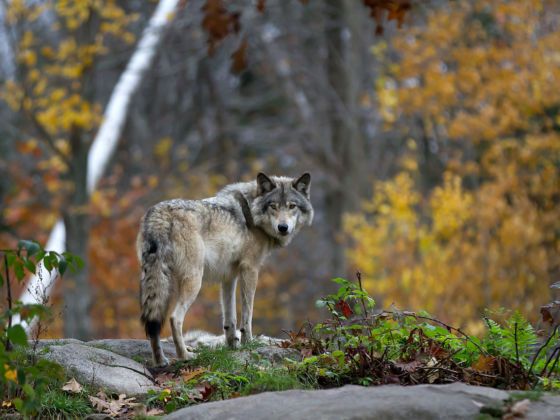In 2015, British Columbia began placing bounties on wolves in an attempt to limit the severe decline of the area’s mountain caribou population. As a result of the cull, over a thousand wolves were killed, but it might not have been as successful as hoped. A new study from the University of Alberta suggests that wolf control was ineffective in increasing the endangered mountain caribou population.

Killing Wolves Didn’t Help Save British Columbia’s Caribou Population, According to New Study
The policy was based on a 2019 study that suggested killing wolves and creating fenced refuges for pregnant caribou females could help reduce the animal’s decline by providing relief from predation.
According to biologist Toby Spribille, however, “The [2019 study] cannot be considered sufficient to make far-reaching decisions on killing animals and where to place conservation priorities. I have no doubt that the [original] authors, in response, will find examples of cases where a wolf is pursuing a caribou and you shoot that wolf, it saves the life of that caribou. Does that mean that can be scaled up to herds where wolves are not even a major predation issue? Does that mean it can be scaled up to a province wolf cull programme?”
Rather than a focus on predation, experts agree that the ultimate drivers of the mountain caribou’s population decline is the loss of habitat and forested refuge from predators due to logging and the encroachment of humans linked to snowmobile and heliskiing harassment.
Ian McAllister, executive director at Pacific Wild, a conservation organization, blames government logging practices for the caribou’s decline. “Wolves in every meaning of the word are being used as a scapegoat for government negligence,” he said.